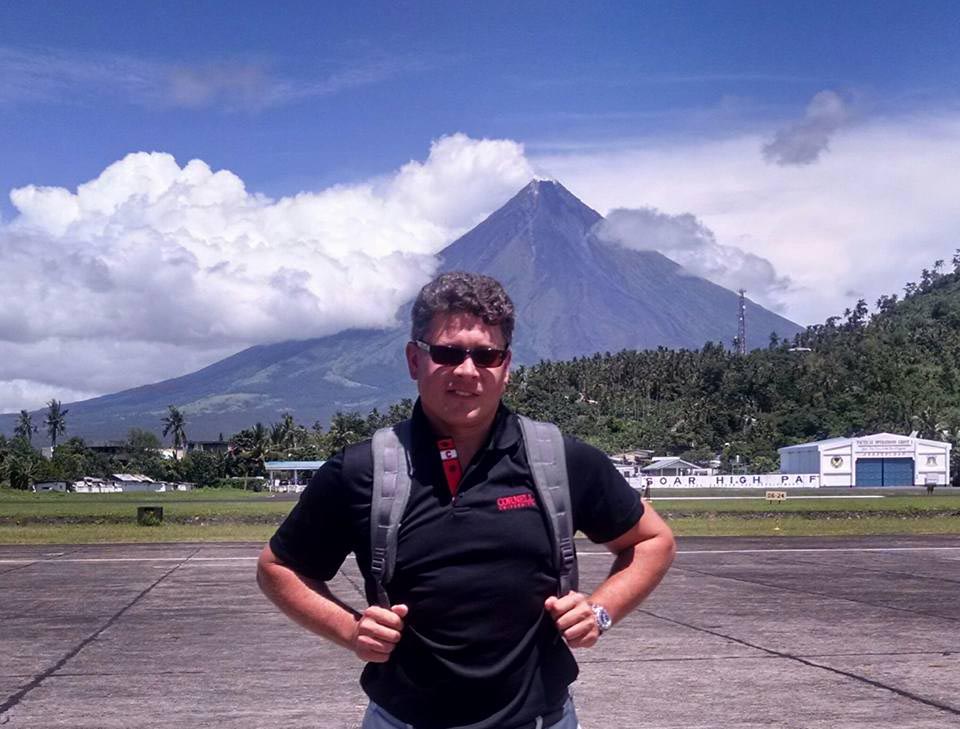Disaster expert helps Philippines rethink crisis response
By Matt Hayes

Typhoons, earthquakes, volcanoes – and the expected dangers of a rapidly changing climate – all leave the Philippines vulnerable to catastrophic disasters. One Cornell researcher is using his expertise to help the country rethink how it responds when things go wrong.
Keith Tidball, senior extension associate in the Department of Natural Resources and director of the New York Extension Disaster Education Network (EDEN), part of a national effort funded by USDA, focuses on helping communities prepare for and respond to disasters that threaten lives and livelihoods. He recently worked as a visiting scholar at USDA’s National Institute for Food and Agriculture, outlining a plan for how the USDA and its disaster education program could better serve international partners and allies.
In the fall, Tidball joined a U.S. delegation that met with high-ranking officials from the Philippine government, agriculture, energy and military to discuss how the American model of disaster response, with its emphasis on using cooperative extension’s expertise and experience with communication and collaboration, might benefit the Philippines. His mission: provide technical assistance to build a replica of the U.S. EDEN model that can be deployed by the Philippine Agricultural Training Institute to better respond to tragedy.
“Traditionally, international partners of the U.S. Cooperative Extension System haven’t experienced its potential as an enterprise for social networking – as a dissemination tool and a community capacity builder in the disaster context,” said Tidball. “Giving those partners access to the knowledge we have developed is a big innovation that could save countless lives.”
That particularly could be true in the Philippines. The coastal nature of the island nation and high rates of poverty leave it vulnerable to storms and climate change. Agriculture employs roughly one-third of total workers in the country, amplifying the potential economic devastation of violent storms.
Improving communication offers a critical step in the Philippines, according to Tidball. In the U.S., disaster relief relies on government and community agencies to coordinate and efficiently share information with the public. NY EDEN, as an affiliate of Cornell Cooperative Extension (CCE) and the USDA EDEN network, uses CCE’s outreach capabilities to link emergency preparedness resources in New York.
Tidball says cooperative extension in the U.S. has the skills, resources and the human capacity to be effective at all points of a disaster by using a robust communication apparatus and a repository of experiential knowledge. Providing international partners with a framework extends the ability of officials to share crisis information, he said.
“Here’s a classic example of Cornell being ‘extension to the world.’ This is not traditional agricultural extension: On these large life-and-death scale situations, we are developing a novel and innovative role for extension,” he said.
Tidball’s goal, he said, is to reduce the risks the Philippines will continue to face from disasters like Typhoon Yolanda. The 2013 storm killed more than 6,300 people and inflicted $2 billion in damage. More than three years later, areas remain devastated throughout the country.
“It makes it that much more meaningful to share best practices and cooperate with your brothers and sisters in some other countries dealing with these threats,” he said. “These aren’t vulnerabilities that are going away.”
Tidball’s participation in the USDA Philippine delegation was facilitated in part by CALS International Programs and CCE, and by the Philippine Department of Agriculture’s Agricultural Training Institute.
Matt Hayes is managing editor and social media manager for the College of Agriculture and Life Sciences.
Media Contact
Get Cornell news delivered right to your inbox.
Subscribe